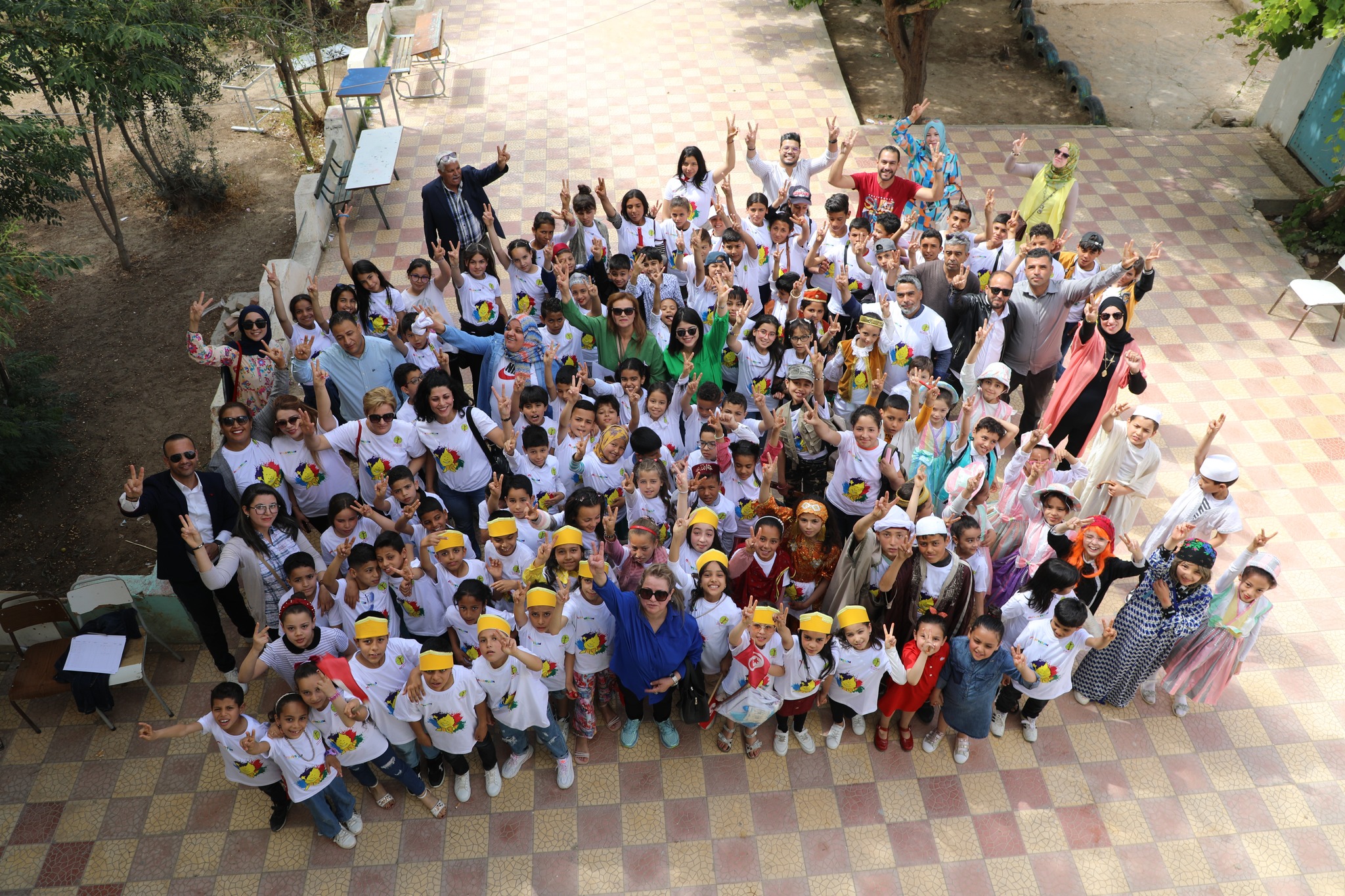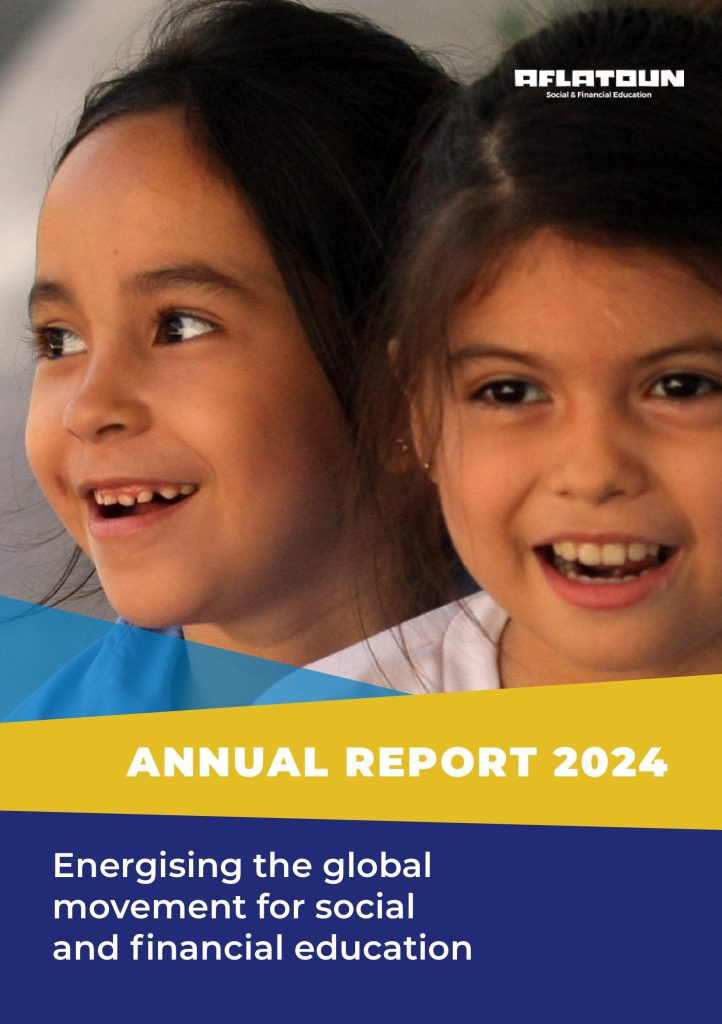Enda inter-Arabe contributes to social transformation through the integration of economic, social, and cultural education for marginalised populations in Tunisia. For the last 30 years, they have been active social changemakers aiming to contribute to the reduction of poverty and social disparities through training, support, social and civil mobilisation. They promote entrepreneurship skills by fostering creativity, social responsibility, and financial empowerment of specifically young people, women, and children.
Our Partnership
Enda inter-Arabe chose to partner with Aflatoun as their objectives of integrating economic, social and cultural education align with Aflatoun’s mission. Since 2020, they have incorporated Aflatoun’s Social and Financial Education curriculum into various aspects of their general primary education programme and adapted it to the Tunisian context. By utilising the AflaYouth curricula, they aim to cultivate a generation of young people who are aware of their social and financial responsibilities and are equipped to manage the available resources efficiently, to create their own business or enter the job market.

Integrating Social and Financial Education in the National Curricula
As a result of the positive impact that introducing Aflatoun Clubs had in Tunisia, the Ministry of Education, represented by the General Directorate of Primary Education, granted official approval to begin integrating Social and Financial education into the curricula of selected primary schools, which started in 2021. Following the success of the pilot phase, the Aflatoun team in Tunisia, in collaboration with a group of educational experts, developed a methodological framework to guide the integration of Social and Financial Education into primary school curricula.
At the beginning of 2025, a workshop was held to design lesson plans aligned with the official curriculum’s key themes and learning areas, incorporating Social and Financial Education concepts using the “Education Through” methodology. The workshop also included teacher training on developing child-centred educational scenarios, integration levels, and the importance of strengthening competencies in Social and Financial Education.
This workshop marked the third training session for teachers in the programme, with 47 educators from all regional directorates participating. It was held at the International Training Centre for Teacher Development and Early Childhood Education, affiliated with the Ministry of Education. Participants will begin integrating Social and Financial Education concepts into their lessons for the remainder of the academic year, expanding the number of engaged teachers to approximately 150 by the end of 2025.












